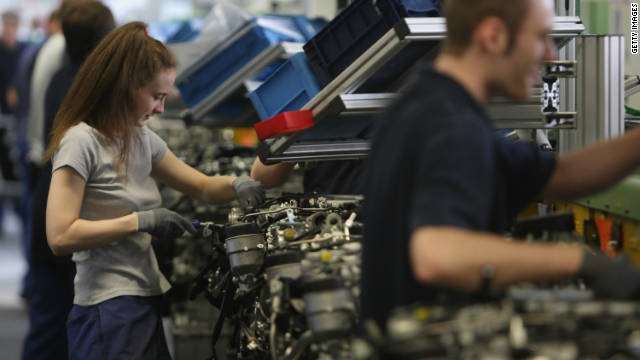
(Financial Times) -- German and French economic growth rebounded in the third quarter of this year, putting the countries in slightly better shape to withstand a looming eurozone recession.
Increases in gross domestic product for the eurozone's two largest economies were at the top end of expectations, according to data released on Tuesday, but did not dispel widespread fears of a significant slowdown in the final months of 2011, fuelled by the region's escalating debt crisis.
German GDP increased by 0.5 per cent in the three months to September compared with the previous quarter, according to the country's statistics office. At the same time, German data for the second quarter were revised upwards to show a 0.3 per cent increase -- compared with the 0.1 per cent originally reported.Simultaneously, France reported a 0.4 per cent increase in the third quarter -- although its second-quarter data were revised downwards to show a 0.1 per cent contraction, rather than the zero growth originally calculated.
The continuing expansion of the German and French economies during the third quarter helped offset weakness in the eurozone "periphery" -- especially in crisis-hit countries such as Greece and Portugal, but also Italy, where recent economic indicators have pointed to a sudden decline in economic activity. Eurozone growth data are released later on Tuesday.
But sharp falls in business and consumer confidence as well as the first effects of widespread fiscal austerity measures are expected to result in eurozone economic activity contracting in the fourth quarter. Earlier this month, Mario Draghi, the new European Central Bank president, predicted a "mild recession" by the year-end.
German growth in the third quarter was driven mainly by consumer spending, with investment spending also helping, according to the statistics office. That suggested economic growth in Europe's largest economy had developed its own momentum, rather than relying on exports, with steady falls in German unemployment over the past two years feeding through into a more balanced expansion. But even Germany is not expected to escape a significant slowdown.
"Today's numbers are as good as it gets for the German economy, at least for a short while," said Carsten Brzeski, European economist at ING in Brussels.
No comments:
Post a Comment